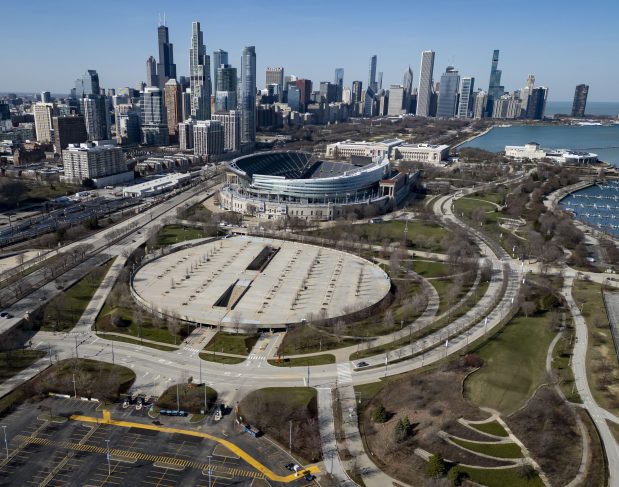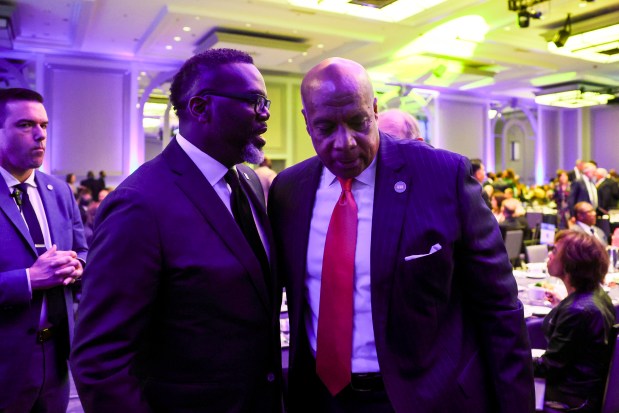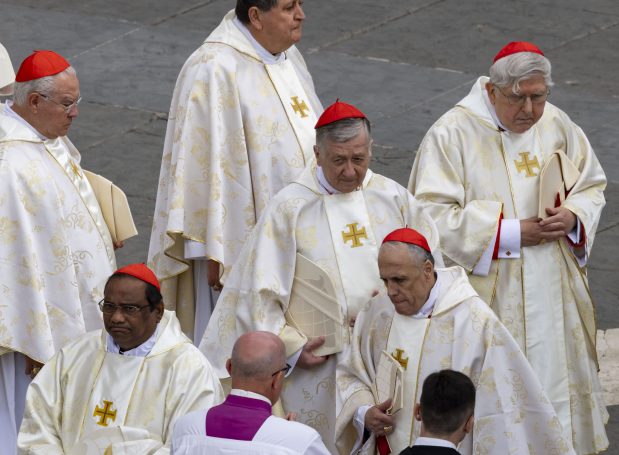Gov. J.B. Pritzker met privately for the first time Tuesday with Chicago Bears President and CEO Kevin Warren as the team continues to push for upward of $2 billion in public support for its proposed new domed stadium on a reimagined lakefront.
The governor’s office, which confirmed the breakfast meeting, said the discussion between the two was “cordial” and was intended for them to get to know each other.
Pritzker has publicly cast doubt on the Bears’ request for the state of Illinois to help fund the team’s nearly $5 billion plan to replace Soldier Field, a plan that has the full backing of Chicago Mayor Brandon Johnson. The governor previously expressed a willingness to listen but said any plan with public backing must “be a good deal for taxpayers.”
When Warren and Bears Executive Vice President Karen Murphy met virtually with top Pritzker aides in May, the governor’s office issued a statement calling the team’s plan “a nonstarter.” The state legislature adjourned weeks later without taking any action on the Bears’ request.
After the breakfast meeting Tuesday, “the governor’s position has not changed,” Pritzker spokesman Alex Gough said.
Pritzker “regularly meets with business leaders and Mr. Warren is the head of an Illinois-based business,” Gough said.
Bears spokesman Scott Hagel confirmed the meeting but declined further comment.
In an interview last month, Warren told the Tribune that this summer and fall would be “critically important” times for advancing the team’s stadium proposal.
“And we’ll continually continue to meet and work with elected officials, our business leaders and continue to communicate … our goal in regards to how this (stadium plan) can be a very productive public-private partnership,” Warren said at the time.
The meeting with Pritzker comes about a month after Warren was tapped to join the board of Intersect Illinois, an economic development organization that works closely with the governor’s administration to help attract businesses to the state.
Warren said he didn’t expect the appointment, which was made not by the governor but by Intersect’s board, “to have any impact on our stadium project.”
State lawmakers are next scheduled to gather in Springfield in November, a week after the general election. That’s when legislation on the Bears’ stadium proposal may get introduced or voted on.
The plan the Bears unveiled in April calls for the team to bring $2.3 billion in private financing to the table, including a $300 million stadium loan from the NFL, but the stadium itself is projected to cost $3.2 billion.

To fill in the gap, the team wants the Illinois Sports Facilities Authority to issue $900 million in new bonds to cover the remaining stadium cost. Additionally, the team wants ISFA to refinance about $430 million in outstanding debt for previous projects at Soldier Field and Guaranteed Rate Field, where the White Sox play.
The Bears also want the state agency to borrow about $160 million more to set up a liquidity fund to cover future shortfalls in the 2% city hotel tax that’s dedicated to repaying the bonds. When those revenues fall short, as they have in recent years, the difference currently gets taken out of the city’s share of state income tax revenue.
Bears officials say the roughly $1.5 billion in new borrowing, which would require legislative approval, could be paid off over 40 years without raising the hotel tax. Including interest and other long-term costs, taxpayers would end up spending about $4.8 billion over four decades, according to ISFA.
The Bears’ proposal would leave little, if any, room for funding other stadium projects at a time when the White Sox also have looked to Springfield for help financing a new stadium at The 78, a proposed development along the Chicago River south of Roosevelt Road.
On top of the borrowing to pay for the stadium itself, the Bears are looking for an additional $1.5 billion in public money for infrastructure improvements to the lakefront around the stadium site to fully realize the team’s vision, including plans to demolish most of Soldier Field and create more lakefront green space.





